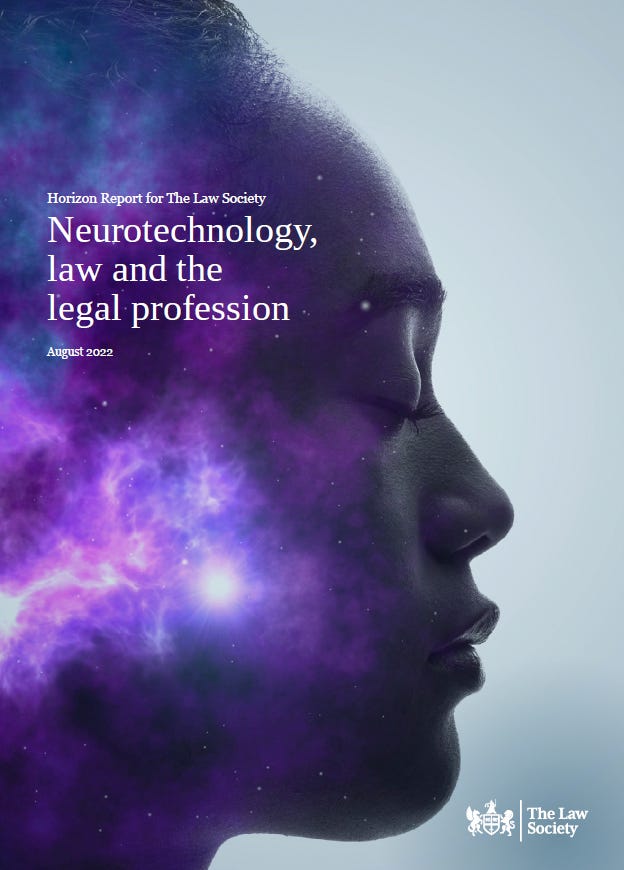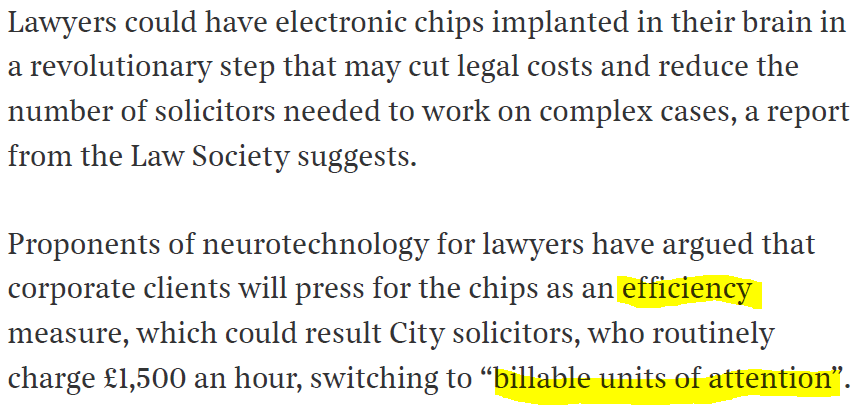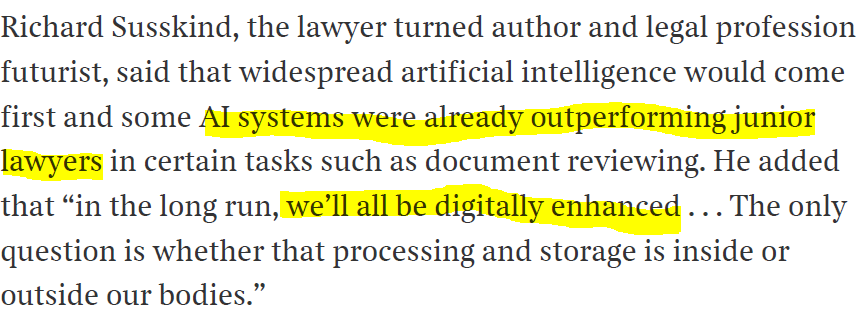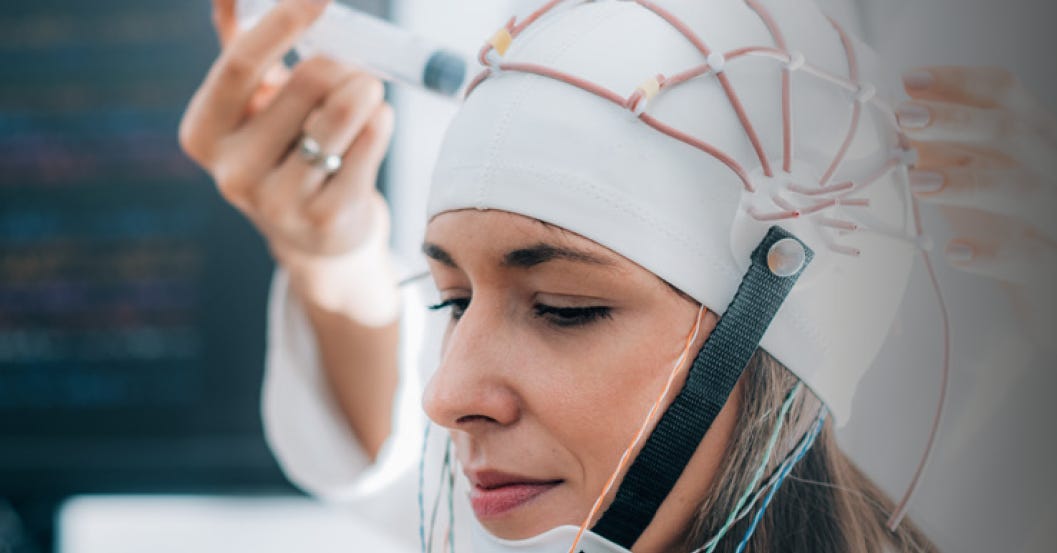It can be challenging to keep up with the dystopic realities, predictive programming pronouncements, and ‘trial balloon’ articles being floated out there to gauge public reaction to suggestible content.
Now we are reaching a new threshold of bizarreness, as science fiction begins to merge with both the possible and the probable; not yet the inevitable. I am specifically referencing here a ‘serious’ publication - The Times - writing about brain-chip interfaces for lawyers in a pro-transhumanist stance. The article being based on a report from The Law Society in the UK.
Let’s all get chipped! Wait…Not so fast
It is interestingly insightful into how legacy media, directly funded by governments to promote and shape narratives, attempts to seed previously unthinkable ideas within the public consciousness.
Let us deconstruct some noteworthy passages from within the article.
The lexicon utilised in the above paragraph serves to seed the idea of bog-standard homo-sapien lawyers becoming obsolete in the legal system if they opt out of the old chippy-chip. Whilst simultaneously dehumanising them to be less personable and more efficient; the vocabulary of billable attention being measured and presumably charged for in a yet to be determined metric of units.
This all supplants the idea of a robotic automaton-esque lawyer coming into being.
The entire paragon surrounding the so called 4th industrial revolution - that Klaus Schwab tells us - “changes you”, continuously reinforces the notion that humans will become commodities of data to be mined. Lovely. Another buzzword we hear often is data-driven, often coupled with a WEF lackey espousing ‘solutions’ based on optimising human capital more efficiently.
This image is taken from the full report by The Law Society. Could you imagine if your lawyer looked like this? Perhaps you could charge your phone in court using this chap’s noggin, if he has a USB port going spare…
This paragraph made your correspondent chuckle. Inferring that our newly augmented lawman shall be able to process reams of information by reading at superspeed, but…how, exactly? I know, I know, I’m a silly old-fashioned organically brained imbecile, trapped in this stupid meatsuit, so I probably don’t possess the brainpower to decipher this.
The icing on the cake wraps up the article with a subtle attempt at sowing seeds of fear within the target audience (of junior lawyers?) by calmly stating how they are already failing to pull their weight, with the AI systems making fools of them. Then we are matter of factly told that eventually we’ll all be digitally enhanced. That’s that then.
Freewill? Freedom of choice? Bodily autonomy? Brain-chip mandates down the line? I jest, but you never know folks.
Key takeaways from the law society report
Plays the greater good of humanity card by citing potential applications of neurotechnology for Parkinson’s disease sufferers, as well as dementia, depression and anxiety
Gives a nod to Mark Zuckerberg’s Meta and Elon Musk’s research as investors in the field
Feigns concerns over ethical, social, political, economic and privacy issues around ‘large amounts of brain data’
Suggests that brain-chipped lawyers would seek to ‘gain an advantage’
Appeals to law firms being able to ‘develop their client base in new directions’
References Chile being the first country to change their constitution to protect transhumans and ‘neuro-rights’
Cites dystopian films and TV series including Black Mirror, seamlessly linking to real-world research in a similar vein
Hints at both medical and military applications with a shoutout to DARPA
Waxes lyrical about regulation and human rights.
This whole shebang reminded me of a scene from the BBC short series Years and Years, in which a girl comes out as trans(human) to her parents, and what an interesting piece of propagandised predictive programming it was indeed.
Nicholas Creed is a Bangkok-based journalistic infidel impervious to propaganda. If you liked this content and wish to support the work, buy him a coffee or consider a crypto donation:
BTC: 39CbWqWXYzqXshzNbosbtBDf1YoJfhsr45
XMR:86nUmkrzChrCS4v5j6g3dtWy6RZAAazfCPsC8QLt7cEndNhMpouzabBXFvhTVFH3u3UsA1yTCkDvwRyGQNnK74Q2AoJs6Pt












That video is disturbing. If you want to live forever as data, why not write some books? They try to make this sound all great but I have my doubts that it is even feasible. The AI scanning reams of legal documents is one thing. Having the compassion and empathy to work on a real case requires human traits...